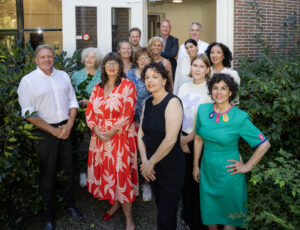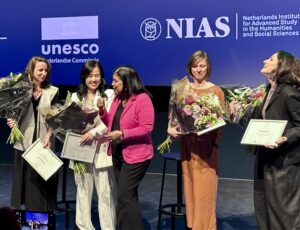The contributions in the Special Section demonstrate what intersectionality has to offer to the different subdisciplines of political science. By directing the attention to the analysis of multiple inequalities, intersectionality sheds new light on the experiences of (multiple) disadvantaged groups and offers a better understanding of the ways power relations play out in politics and policy.
> Read more about the topic in “Mix it Up, Be Messy” (blogpost by Liza Mügge and co-editor Silvia Erzeel) (also on nias.nl)
> Politics Special Section Intersectionality and Political Science Research
The Politics Special Issue is Mügge’s second special issue on the topic this year. In July, a special issue of Parliamentary Affairs was published. In “Double Jeopardy or Multiple Advantage? Intersectionality and Political Representation” Mügge en Erzeel revisit traditional group-based approaches to political representation by examining how multiple advantages and disadvantages interact and multiply in specific settings. The contributions examine how intersections of age, religion, gender, sexuality, ability, nationality, generation and ethnicity influence entrance to elected office and the power elected officials eventually wield.
About Liza Mügge
Liza Mügge is Associate Professor at the Political Science Department and Director of the Amsterdam Research Center for Gender and Sexuality (ARC-GS) at the University of Amsterdam. She is currently a fellow at NIAS to write on how a minority background and/or being a woman influences the actual work of politicians.



